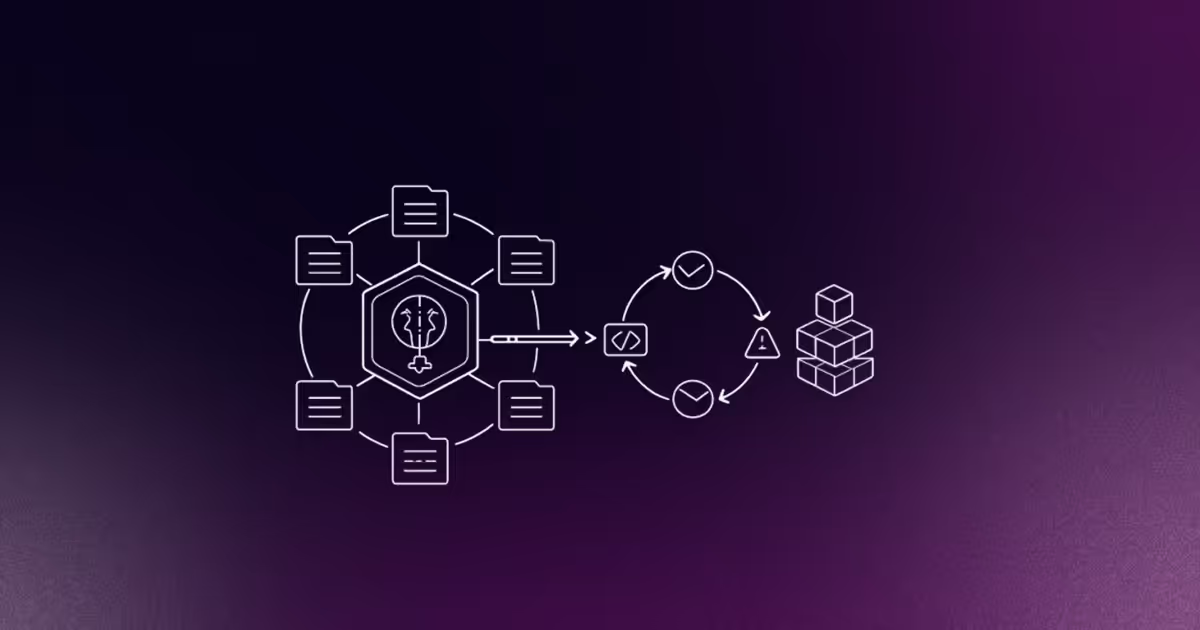As platform engineering increasingly eats the world, new sub-disciplines have emerged to better reflect the realities on the ground for platform engineers.
The most recognisable of these sub-disciplines is DevEx Platform Engineering, which focuses on ensuring that Internal Developer Platforms (IDPs) are designed with the developer’s needs, preferences, and workflows at its heart. DevEx platform engineers are advocates for developers, using product management principles to deeply understand and reflect what developers actually need, then shaping the platform to match. They focus on creating intuitive and effective golden paths that reduce friction and cognitive load for devs. Often seen as the cultural core of platform engineering, DevEx platform engineers are what bring the human-first mindset to improved developer productivity.
Based on what we’ve seen across hundreds of platform teams over the past few years, this article will break down what the role of the DevEx Platform Engineer looks like and what skills and responsibilities they need to succeed.
Why DevEx platform engineers matter
DevEx platform engineers are crucial to platform engineering teams because they bring the human touch to platform engineering helping to drive developer productivity and deliver business value. It is the DevEx Platform Engineer that is the key delegate of app dev teams. They understand and deeply care about developer pain points and general DevEx struggles or bottlenecks. They help diagnose bottlenecks and friction that cost time and morale.
As the effectiveness of any platform isn't judged by its technical prowess alone but by how intuitively and efficiently it supports developers in their workflows, DevEx platform engineers are crucial in helping drive clear communication, product thinking, and a developer-focused culture.

Basically, DevEx developers are a core part of the platform engineering team. If Infrastructure platform engineers are delegates of the I&O teams, making sure the IDP acts as an interface that facilitates the consumption of resources and infrastructure by app developers in a compliant and standardized way, then the DevEx engineers are delegates of the app dev teams.
They understand and deeply care about developer pain points and general DevEx struggles and bottlenecks. DevEx engineers are critical in driving value and enhancing developer productivity by ensuring good self-service flows and intuitive interfaces on top of golden paths. They make sure the app dev perspective is taken into account - for example, when it comes to the choice of interfaces (which should be left to the developer, e.g., code-based like Score vs. portal like Backstage).
DevEx platform engineers matter because developer productivity is do or die for a successful platform; a platform with poor developer experience has no reason to exist. Rather than help, it will just lead to even more cognitive load, frustration, and resistance, and get basically zero adoption and just waste your time.
According to the State of Platform Engineering Report 2024, 65.16% of the surveyed teams focused on enhancing DevEx through Internal Developer Platforms (IDPs), and 68.03% prioritized infrastructure standardization. The data is clear. Platform engineering is a multiplayer game, and over-indexing in any one area is a disaster waiting to happen.
Whether you ask Gartner, who sees a very high correlation between DevEx investment and productivity gains, or the actual dev who feels the benefits of DevEx platform engineering first-hand, investing in DevEx is not a nice-to-have.

Core responsibilities explained
Like everyone in platform engineering, being a DevEx Platform Engineer means wearing many hats; the role calls for a mix of deep technical know-how and strong communication, collaboration, and empathy.
One key area is developing and maintaining self-service tools. These tools empower developers to configure infrastructure, CI/CD pipelines, and application environments without unnecessary dependencies or friction. Imagine a world where setting up a new development environment or deploying an app is a simple, self-driven process. That's what the DevEx Platform Engineer is pushing forward towards.
Next is automating development workflows. Repetitive tasks can be a significant drain on dev time and focus. By identifying and automating these processes, a DevEx Platform Engineer helps to speed up the entire software development lifecycle. This could involve automating dependency management, code quality checks, or even aspects of the deployment process.
They are also key for creating and maintaining comprehensive developer documentation and guides. Your platform is a product after all. And products need docs. You don’t need me to tell you the correlation between seamless onboarding and easy adoption and the quality and accessibility of documentation. It is the DevEx Platform Engineer's job to ensure that developers have the resources they need to understand and utilize the platform effectively. This includes clear instructions, helpful examples, and up-to-date information.
DevEx platform engineers are also often in charge of measurement, and improving the feedback loop between developers and platform teams. By implementing analytics and monitoring tools, they give visibility into platform performance and the developer experience itself. This data-driven approach allows for continuous improvement and ensures that the platform evolves to meet the needs of its users. It also means that devs can get access to logs, metrics, and monitoring tools to diagnose issues and optimize their apps more efficiently.
In the end, however, these technical examples are just one piece of the puzzle. You need to keep in mind that it is collaboration and communication that drive success for DevEx platform engineers. They need to work effectively with platform engineering domains, particularly with infrastructure, security, and reliability platform engineers. They need to be the bridge between the developer and the rest of the platform team to ensure that your Internal Developer Platform is one that effectively serves the Developer, but without overindexing on them to the detriment of everyone else.
To summarise, DevEx platform engineers focus on areas like:
- Self-service tooling: Develop and maintain tools that let developers manage infrastructure, CI/CD, and environments independently.
Workflow automation: Eliminate repetitive tasks by automating development processes like testing, deployment, and dependency management. - Developer documentation: Create clear, user-friendly guides and documentation to support onboarding and platform adoption.
- Measurement & feedback: Use monitoring and analytics to track platform usage and improve the developer experience based on real data.
- Collaboration & empathy: Work closely with platform teams and developers, emphasizing strong communication and understanding of their needs.
The evolving role of DevEx platform engineers
Like many roles in this industry, this is not a static role. As platform engineering continues to shape modern software development, the responsibilities of the DevEx Platform Engineer will evolve. The obvious direction is playing a key role in integrating and managing everything that has to do with AI platform engineering, like AI-powered developer assistance such as AI-based code suggestions, intelligent documentation, and automated debugging tools.
Plus, with the increasing adoption of low-code and no-code solutions, DevEx platform engineers will need to ensure seamless collaboration between professional developers and business users. And last but not least, data, data, data. Enhanced developer analytics will become even more critical, making data-driven decision-making for improving DevEx, tracking usage patterns, and identifying pain points in the dev journey a neverending focus.
Lastly, to hammer it for you one last time, as important as DevEx platform engineering is, you can’t forget that all platform engineering sub-disciplines must work hand in hand. DevEx and Infrastructure need to always be in balance with each other. Humanitec CEO Kaspar von Grünberg emphasizes this perfectly in his PlatformCon 2024 talk on how over-optimizing for DevEx can harm the efficiency of infrastructure teams.
Conclusion
In conclusion, the DevEx Platform Engineer is a fundamental driver of success in today’s platform engineering teams. They are an enabler of innovation, a catalyst for productivity, and a key ingredient in creating a successful engineering organization. Organizations that effectively champion DevEx platform engineers are the ones winning the platform engineering game.
If you want to become a DevEx platform engineer or ensure your team is ready for a DevEx Platform Engineering future, take a look at our Platform Engineering Certification courses.













